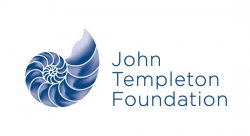Dr. Jennifer Brown Urban and Dr. Miriam Linver receive $1,288,328 Grant from the John Templeton Foundation
Character Virtue Development Evaluation Capacity Building Initiative
Posted in: College News and Events, REDSS Lab

Dr. Jennifer Brown Urban and Dr. Miriam Linver, Associate Professors in Family and Child Studies and co-directors of the REDSS Lab (Research on Evaluation and Developmental Systems Science), have been approved to receive $1,288,328 in funding by the John Templeton Foundation for their project entitled “Character Virtue Development Evaluation Capacity Building Initiative.”
A common challenge for youth programming (including character development) is that organizations do not possess the knowledge and resources to effectively evaluate their programs. The Partnerships for Advancing Character Program Evaluation (PACE) Project is designed to immediately increase the capacity of participating staff from youth character development programs to evaluate, improve, defend, and seek funding for their programs. PACE Project will target promising school and non-school based programs that emphasize the development and strengthening of character and virtues such as honesty, generosity, forgiveness, diligence, thrift, joy, curiosity, and humility. The PACE Project is intended as a proof of concept for an innovative approach to sustained capacity building that includes the development of a cohort of evaluation professionals who will be trained in Evolutionary Evaluation (EE), Person-Centered Analysis (PCA), Evaluative Thinking (ET) and facilitation of the Systems Evaluation Protocol (SEP) so that they can be paired with youth character development programs seeking evaluation support. This networked cohort of trained program and evaluation professionals will then provide an essential foundation for a fundamental cultural and pedagogical shift toward high quality evaluation work across the broader landscape of character development programs that will ultimately lead to more effective character development programming in youth serving settings. The Big Questions the PACE Project aims to address are: (1) Can character development programs be strengthened and can successful programs be further disseminated as a result of engaging in evaluation capacity building efforts?, and (2) Can the PACE Project serve as a proof-of-concept for developing the evaluation capacity of character development practitioners and evaluators?
